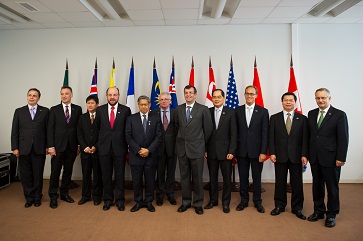
The think tank “Centre for Economics and Business Research” (CEBR) published an article on December 26, 2013, which asserts that Britain will become the largest Western European economy by 2030. According to the IMF’s latest World Economic Outlook report, the UK’s economic growth is expected to reach an impressive 2.9% in 2014 before returning to a steady 2.5% in 2015, making it the fastest growing country in the G7 this year. This is in addition to an already booming housing market alongside rising employment levels. If trends continue, Britain is expected to overtake Germany as Europe’s strongest economic power.
Some suggest that Britain’s enviable economic position in comparison to its European neighbours is a result of its decision to avoid joining the Euro. In 1992, the Maastricht Treaty granted Britain an opt-out clause which indicated that the UK was not required to abide by the third stage of the European Economic and Monetary Union (EMU). In doing so, Britain was able to avoid scrapping the pound sterling in favour of introducing the Euro as its new standard currency. The opt-out clause was a result of British public opinion that had consistently rejected further integration with the rest of Europe. Moreover, the UK government announced that it would only begin moving towards economic union with Europe if five specific criteria were met. Although it was found that economic integration would likely produce increased investment, financial services, and job creation, the British government was skeptical that convergence with Europe would be sustainable or flexible enough to effectively deal with any difficulties that the Eurozone might face. It turns out that this decision may have been the correct one.
Due to their refusal to surrender the pound sterling, the UK’s banks were able to avoid financial disaster. Other EU member states that had adopted the Euro were not so lucky, and they faced severe economic consequences. In Ireland, the financial crisis resulted in a near collapse of Ireland’s entire banking sector, where as in the UK the British pound acted as shock absorber, and fell in value as the central bank cut interest rates and used other measures to reflate the economy. Although Britain was certainly not immune to the effects of the financial crises, had the UK joined the Euro, it might have shared the same fate as Ireland, and would potentially have required the similar adoption of an EU/IMF austerity measures program.
Another possible reason for Britain’s predicted economic ascendancy has to do with the country’s speculated future demographics. The UN has projected that the UK’s current population will rise from its present 61 million to 69 million in 2030, whereas Germany’s current population of 82 million is expected to decrease to 80 million during the same period. Although Germany’s overall population will remain higher, the country’s age-structure is expected to become far older than that of the UK, significantly diminishing Germany’s economic output in comparison. The UK also has by far the largest birth rate amongst the largest European countries, including Germany, France, Italy, Spain and Poland.
Despite these indications of growth, however, Britain’s economic rise is not by any means guaranteed. The IMF believes that external shocks caused by growth disappointments in emerging markets could damage the British economy via financial linkages with the rest of Europe. The IMF has already noted that emerging economies are experiencing bouts of volatility in the financial sector, such as China’s shadow banking and weaker-than expected Purchasing Managers’ Index (PMI) data. Furthermore, the British economy could potentially suffer upon a declaration of Scottish independence. An independent Scotland might mean the loss of the UK’s current oil revenue derived from hydrocarbon reserves located in the North Sea. Tax revenues of over £300 billion from 40 billion barrels of oil have poured into the UK’s treasury over the last 40 years. Additionally, it is speculated that between 15 and 24 billion barrels remain, not including the potential for other discoveries such as oil fields west of Shetland.

Moreover, speculations regarding the UK’s future economic growth depend on the key assumptions that the Euro will continue to decline in value, and that Germany’s population will continue to fall while the UK’s continues to rise. This is, of course, barring any kind of significant event likely to shift the economic landscape, such as a positive vote for Scottish independence. Nevertheless, if Britain’s growth continues unhindered, the CEBR report indicates that the UK will become the world’s 5th largest economy by 2018 when it overtakes France. It is then likely to fall to 7th place behind India and Brazil in 2023 and 2028 respectively, at which point it is forecast to be only 3% behind Germany. By 2030, however, the think tank predicts that the UK will finally eclipse Germany as the largest European economy.




